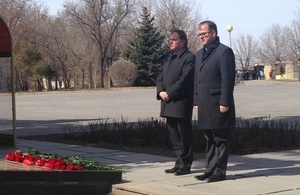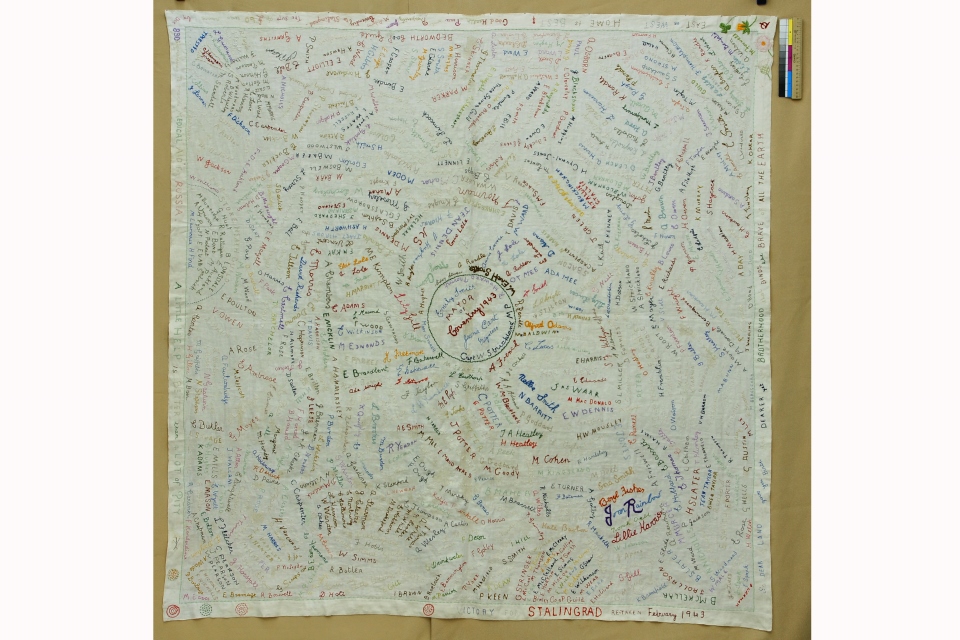World War II commemorations: the story of the Coventry tablecloth and Stalingrad
British Consul General in St Petersburg Keith Allan recently visited Volgograd with Minister and Deputy Head of Mission in Moscow, Martin Harris. In this blog, Keith talks about the special relationship between Coventry and Volgograd, which began during World War II when Volgograd was known as Stalingrad, and the importance of this shared history between the UK and Russia, as the latter prepares to commemorate ‘Victory Day’ on 9 May.

There are many remarkable stories of friendship, courage and bravery shared by the people of the United Kingdom and what was then the Soviet Union during World War II. I wrote previously about the incredible story of an exchange of albums between the women of Coatbridge and Airdrie (near Glasgow) and Leningrad during the difficult days of the siege.
During a recent visit to Volgograd with the Minister and Deputy Head of Mission at the British Embassy in Moscow, Martin Harris, I was delighted to discover a similar and equally inspiring story from the time of the famous Battle of Stalingrad during World War II. In 1944, the people of Coventry sent a tablecloth to Stalingrad with 830 names of Coventry women and words ‘Little help is better than big sympathy’ embroidered on it. The tablecloth and money collected by the people of Coventry were sent to Stalingrad through the Soviet Embassy in London. The name of the city was changed from Stalingrad to Volgograd in 1961. Today the Coventry tablecloth is kept at the museum ‘The Battle of Stalingrad’ in Volgograd.

Photo of the Coventry tablecloth (courtesy of the museum 'The Battle of Stalingrad')
Stalingrad and Coventry became sister cities in 1944 when the tablecloth was sent. In 2004, to mark the 60th anniversary of the sister city relationship, a formal twinning agreement was signed between Volgograd and Coventry. In 2008, the people of Volgograd made a ‘Stalingrad tablecloth’ for the people of Coventry to mark 65 years of the sister city relationship. I am pleased to say that people to people links remain strong between Volgograd and Coventry. Indeed, the Lord Mayor of Coventry and the Mayor of Volgograd exchanged visits in 2014.
When talking to a wide range of contacts in Volgograd I was struck by the warmth and appreciation for the UK’s support during and after World War II. Another fine example was the decision in 2000 to award The Queen Mother with the title of honorary citizen of Volgograd for her post-war relief work. During our recent visit we also laid flowers at the magnificent Mamayev Kurgan memorial complex in honour of those who died at the Battle of Stalingrad.
It is important that we continue to remember and honour these important chapters of shared history between the UK and Russia. On 9 May, Russia will commemorate ‘Victory Day’, its own national day for honouring those who died during World War II. This year is particularly important as it marks the 70th anniversary since the end of the war. Events will take place throughout Russia.